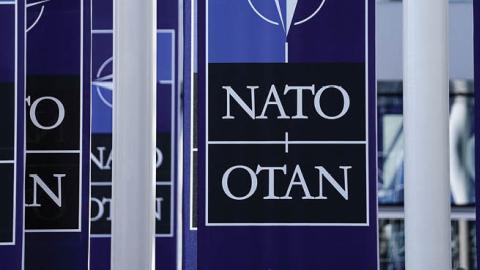The United States has ambitious hopes for NATO. **Across several administrations, the American critique of NATO has not been that it does too much, but that it does too little.** This is true for two reasons: the changing nature of warfare and America’s irreplaceable role in Europe.
**In today’s battlespace, fulfilling core alliance duties like collective defense requires coordination across a range of ostensibly civilian areas.** Gone are the days when planners could neatly divide military and civilian sectors. Instead, in tomorrow’s competition, Russia and China are sure to probe the seams that stitch together the European Union and NATO. Telecommunications may be an area suited for EU discussion, for example, but NATO operates on a commercial backbone too. Similarly, from ports to artificial intelligence, it will be essential for the Alliance to fully vet the military implications of EU standards and directives in commercial sectors.
For all of Europe’s impressive progress over the decades, the United States remains the guarantor of European security, which, in turn, is the basis for political cooperation on the continent. **To date, there has not been a military operation conducted by a member state or the EU that has not required American assistance.** Even the much-hyped Operation Sophia relied on the United States for basic visibility in the Mediterranean. For these reasons, the US has pressed its allies to invest more in defense.
The transatlantic alliance is a natural channel for such investment. The Alliance features the world’s most cutting-edge platforms. In 2018, for example, Leonardo and Boeing won a major contract to manufacture US Air Force helicopters. From Airbus to Rheinmetall and from Thalys to Saab, European companies regularly work with the Pentagon. Today, 25% of every F-35 aircraft is built in Europe. **Instead of erecting American and European silos, the West should embrace transatlanticism in all its facets to keep NATO the greatest alliance in history.**
Read in Institute Montaigne

















